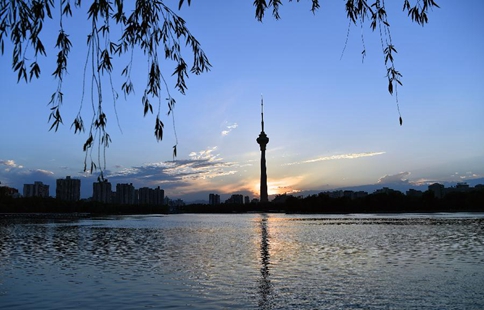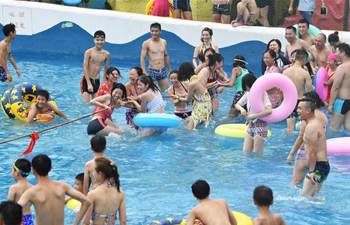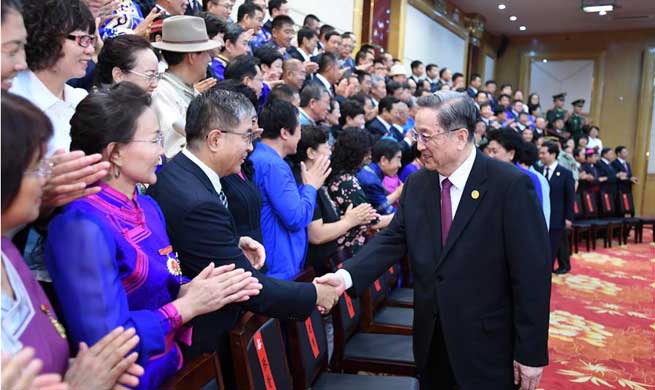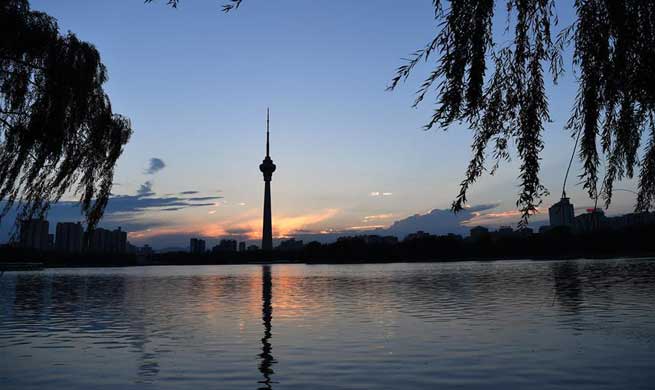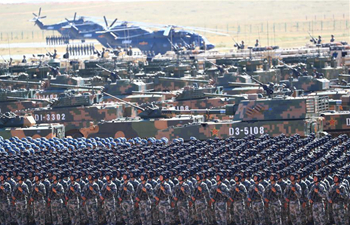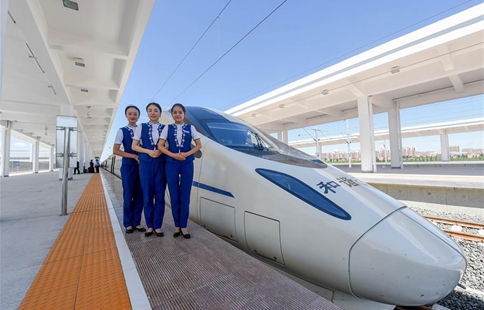BEIJING/MANILA, Aug. 8 (Xinhua) -- Following the adoption of a new UN Security Council resolution targeting Pyongyang's nuclear and missile programs, major players involved in the Korean Peninsula nuclear issue have renewed their call for a peaceful solution to the issue.
The renewed call for a solution to the Korean Peninsula nuclear issue by peaceful means was made mainly during bilateral interactions or on multilateral occasion
Chinese Foreign Minister Wang Yi and the EU's High Representative for Foreign Affairs and Security Policy Federica Mogherini exchanged views on the current situation in the Korean Peninsula, on the sidelines of a recent gathering of foreign ministers from the Southeastern Asian nations and their partner countries in the Philippine capital city of Manila.
The UN Security Council resolution regarding the Korean Peninsula should be implemented in a comprehensive and full way, Wang said.
China's "double suspension" proposal, which requires the Democratic People's Republic of Korea (DPRK) to suspend its missile and nuclear activities in exchange for the suspension of large-scale U.S.-South Korean military drills, can deal with the most urgent safety concerns of various parties and cut the vicious circle in the current situation, providing a breakthrough to resume peace talks, Wang said.
The parties concerned should take due responsibilities, Wang said.
The EU appreciated China's important role in tackling the Iranian nuclear issue and the Korean Peninsula nuclear issue properly, Mogherini said.
The EU and China have cooperated well in dealing with the Iranian nuclear issue and hoped to learn from the negotiation experiences in tackling the Iranian nuclear issue and strengthen communication and cooperation so as to seek a peaceful solution to the Korean Peninsula nuclear issue, she said.
The Chinese minister also urged the DPRK to respond to earlier guarantees of U.S. Secretary of State Rex Tillerson, including the one that the United States does not seek a regime change in the DPRK, or an accelerated reunification of the peninsula, or using the issue as an excuse to send the U.S. military north of the 38th Parallel.
Meanwhile, the United States seemed to have soften its tone regarding the DPRK, after months of tough talks.
Speaking in Manila on Monday, Tillerson said Washington is willing to talk to Pyongyang if it halts missile test launches.
"The best signal that North Korea (the DPRK) can give us that they are prepared to talk would be to stop these missile launches," said Tillerson. He also said any dialogue would deal with how Pyongyang can "feel secure and prosper economically."
Also speaking in Manila, Russian Foreign Minister Sergei Lavrov called on all parties involved to "show the utmost restraint in order to avoid implementation of negative power scenarios on the Korean Peninsula" and immediately begin searching a political and diplomatic settlement through a comprehensive solution to the issue.
Lavrov held a meeting with Ri Yong Ho, his counterpart of the DPRK on the sidelines of the foreign ministers meeting in Manila on Monday, the Russian Foreign Ministry said.
Some countries involved in the issue also exchanged views over the issue away from the spotlight on the Manila meetings.
South Korean President Moon Jae-in on Monday urged Pyongyang to come to a dialogue table following the UN Security Council's unanimous adoption of the new resolution on Pyongyang.
Moon said he and U.S. President Donald Trump had a phone conversation regarding the issue.
During the phone talks, the two leaders re-confirmed that the denuclearization of the Korean Peninsula should be achieved in a peaceful manner, instead of military means.





